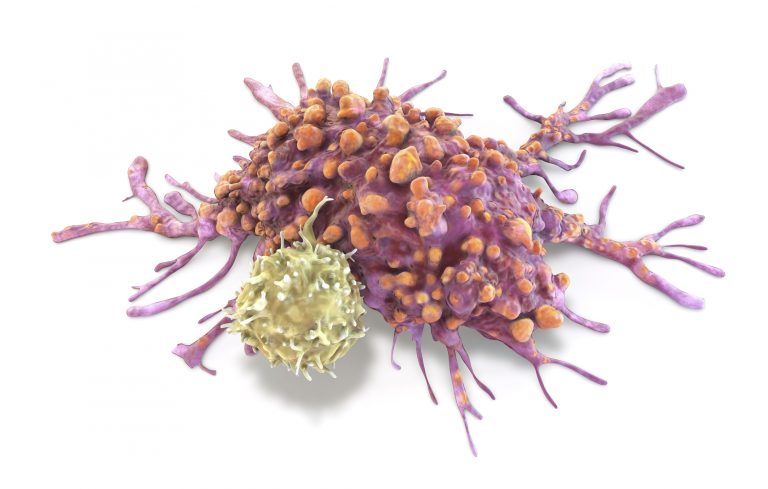
Although immunotherapy has emerged as a potent cancer treatment over the last decade, long-lasting results have been largely disappointing. In new research from the University of Toronto, researchers have identified dozens of genes that allow cancer cells to evade detection by the immune cells.
The finding paves the way for the development of immunotherapies that would be effective for larger patient populations and across different tumor types.
In immunotherapy, a patient’s T-cells are engineered to find and destroy cancer. But treatment resistance has precluded its use in most patients, especially those with solid tumors.
In this discovery, published in the journal Nature, researchers looked for genes that regulate immune evasion across six genetically diverse tumor models derived from breast, colon, kidney and skin cancer. The cancer cells were placed in a dish alongside the T-cells engineered to kill them. The researchers next deployed the CRISPR gene editing tool to switch off one-by-one every gene in the cancer cells and measured the resulting deviations from the killing baseline.
They discovered a hierarchical and coordinated way that genes and pathways act together in cancer cells to evade T-cells, especially those that control the interferon response and tumor necrosis factor cyototoxicity.
Notably, the team identified 182 genes involved in regulating the interaction between cancer cells and T-cells, raising the possibility of harnessing this information for improved immunotherapy treatments.
Further studies showed that deletion of these ‘core cancer intrinsic immune evasion genes’ makes the cells either more sensitive or more resistant to T-cell attack. Among the resisters were all the genes, especially PTPN2, SOCS1 and ADAR1, known to develop mutations in patients who stopped responding to immunotherapy.
Many of the identified genes had no previously identified links to immune evasion. In particular, genes involved in autophagy – the process when cells recycle their components to mitigate damage following stress, were associated with immune evasion in this study. This raises the possibility that cancer’s susceptibility to immunotherapy could be boosted by targeting its autophagy genes.
But the team discovered that turning off certain autophagy genes also turned off susceptibility of cancer cells to T-cell attack. This means that if a tumor already harbors a mutation in one autophagy gene, a treatment that combines immunotherapy with a drug targeting another autophagy gene could make the disease worse in that patient.
The study highlights the need to consider the genetic composition of tumors because of mutations in the cancer cells that can potentially make the disease worse in response to treatment. This tumor heterogeneity, or genetic variation in tumor cells within and across individuals that can impact therapy response, complicates treatment strategies that target a single gene in cancer immunotherapy.
The study provides a reference set of core T-cell evasion genes and pathways that may inform efforts to develop cancer immunotherapy strategies. By showing how genetic interactions, including the autophagy pathway, combine to alter T-cell evasion the authors caution against reliance on single gene immunotherapy approaches.













